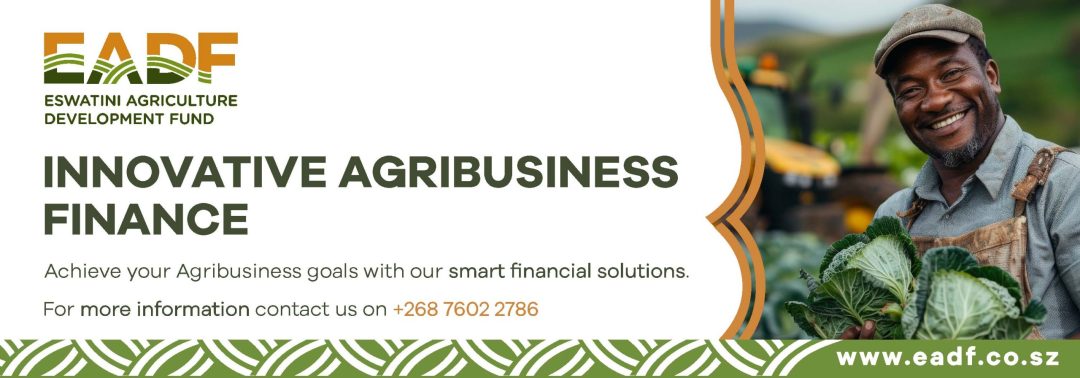
By Lindani Maseko
The European Union (EU) and the International Trade Centre (ITC), in collaboration with the Government of Eswatini, have taken a significant step towards strengthening the country’s leather sector.
Through the Eswatini Livestock Value Chain Development Programme (ELVCDP), 25 micro, small, and medium-sized enterprises (MSMEs) have been trained in vegetable tanning – an eco-friendly leather processing method that enhances both sustainability and market competitiveness.
The two-week intensive training, held at Eswatini Cooperative Development College (ECODEC), was led by Harrison Mungai, an expert from the Africa Leather and Leather Products Institute (ALLPI).
The initiative aimed to equip local artisans with plant-based tanning techniques, providing a sustainable alternative to conventional chemical-based leather processing.
Transforming Eswatini’s leather industry
Eswatini’s leather sector has long struggled with limited technical expertise, restricted access to raw materials, and dependence on imported leather. Despite the country producing high-quality hides, many local businesses source raw leather from South Africa, resulting in higher costs and limited value addition.
The introduction of vegetable tanning, which relies on plant-based agents instead of harmful chemicals, marks a turning point in reducing dependency on imports and fostering local production.
“Most of our MSMEs currently rely on imported leather, even though Eswatini produces excellent hides,” said Sibonangabo Sikhondze, ITC’s ELVCDP National Livestock Expert. “This training empowers local artisans to process leather using eco-sustainably, increasing their competitiveness in both local and international markets.”
For local artisans, this training is not just about learning new skills – it is about economic self-sufficiency.
“We struggle to find locally tanned hides, which forces us to import from South Africa,” said Robert Shabangu, Chairman of the Eswatini Leather Craft Multipurpose Association. “Now, with these skills, we can begin tanning our leather and reduce our reliance on imports.”
Strengthening value chains and market potential
The ELVCDP, supported by the EU and implemented by ITC in partnership with the Eswatini Government as part of the broader programme, is dedicated to improving livestock productivity and strengthening value chains.
By localizing leather production, the initiative is creating new economic opportunities, reducing production costs, and enhancing the sustainability of Eswatini’s leather industry.
Eva Maria Engdahl, Head of Cooperation at the EU, emphasized the broader economic benefits of the training. “By equipping MSMEs with sustainable tanning skills, we are fostering job creation and reducing the reliance on costly imports. Vegetable tanning not only enhances marketability but also ensures environmentally friendly production. The EU remains committed to strengthening value chains and supporting sustainable business growth in Eswatini.”
Beyond skills training, industry leaders are calling for investment in infrastructure to support local tanning efforts.

“Leather has the potential to become Eswatini’s second-largest export after sugar,” said Mluleki Dlamini, Director of MSMEs at the Ministry of Commerce, Industry and Trade. “We need to build on this training and develop a competitive local tanning industry that can position Eswatini as a key player in the regional and global leather market.”
Looking ahead: From training to industry growth
The success of this training marks the beginning of a broader effort to establish a resilient competitive leather sector in Eswatini. Industry stakeholders are now advocating for the establishment of a national tannery to maximize the economic potential of the country’s high-quality hides.
Dr. Xolani Dlamini, Director of Veterinary and Livestock Services in the Ministry of Agriculture, stressed the importance of turning skills into action. “We must transition from training to implementation. Our beautiful Nguni cattle hides should be tanned locally instead of being exported for processing elsewhere. A fully functional tannery in Eswatini would drive industry growth and job creation.”
Speaking on behalf of the trainees, Dineo Malinga expressed gratitude to the EU, ITC, and Government of Eswatini, while highlighting the need for continued support. “Access to local tanning facilities and proper preservation of hides at abattoirs will be crucial to scaling up our industry. We are eager to apply our new skills, produce high-quality leather, and grow Eswatini’s leather sector.”






